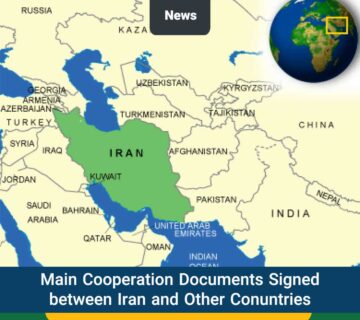In this article you will read:
Frequently Questions about Foreign Investment in Iran
This chapter is a compilation of the enquiries frequently asked by potential investors willing to invest in the Islamic Republic of Iran. We hope the answers provided herein will assist investors, and provide them with access to a package of information in respect of the legal framework for investing in Iran.
You may find certain questions which do not necessarily have any direct relevance for Foreign Investment as a whole, but in light of the need for preparing a multipurpose source of information, we have tried to compile a variety of common inquiries to respond to frequent questions relating to doing business in Iran in general.
Obviously, those investors who may need more detailed information on any subject are recommended to communicate directly with any of the Authors who are in a position to welcome them by providing answers to any other question which is not addressed in this guide as well.
ESK Law Firm Services
Foreign Investment Law
Is Iran safe?
The short answer is “Yes.” The long answer is “Yes, of course.”
Iran boasts an excellent security record, especially when you take into account the fact that it is located in one of the world’s most volatile and unstable regions. The country is a safe haven in a sea of turmoil, and you would be hard-pressed to find a foreign tourist who felt unsafe during their visit.
Popular destinations such as Tehran and Isfahan have formed tourism law-enforcement units whose main purpose is to serve foreign travelers. Furthermore, the legal arm of Iran’s Cultural Heritage, Handicrafts, and Tourism Organization even helps foreign visitors pursue complaints after they have left the country, should they want the organization to follow up a complaint.
You might also be interested in :
Who can travel to Iran?
Citizens of every country recognized by the Iranian government can travel to Iran. The country offers 30-day visa-on-arrival to citizens of 190 countries at its international airports. Iran has also waived visa requirements for citizens of Turkey, Georgia, Azerbaijan, Armenia, Syria, Egypt, Lebanon and Bolivia. Russians traveling to Iran as part of an organized tour also do not require a visa.
Do I need an Iranian Business Partner?
Generally speaking, there is no obligation to have an Iranian partner for doing business in Iran. However, having Iranian partner or shareholder is required in very limited circumstances such as in Internet Service Provider (ISP) Companies. Furthermore, some businesses need an Iranian representative, for example all importers of cosmetic products have to appoint a representative in Iran

Is foreign indirect investment allowed?
Yes, in accordance with Iran’s laws, especially FIPPA, foreign indirect investment is allowed in any fields that an Iranian private sector can invest in.
As you may know, one the most important indirect investment is buying and selling shares and equities in the stock market.
Tehran Stock Exchange established in 1968 and has implemented many reform measures in the past few years in order to bring it in line with international practice, and to better reflect investors’ diversified needs.
TSE is set to continue making progress towards liberalization and internationalization. The Tehran Stock Exchange, with its fully automated trading systems and book entry mechanisms, is known as one of the most active exchanges in the Middle East region.

Are there any restrictions for foreigners to become participants in the charter capital of the company (own equity?)
No, there are not. In fact, foreign investor can register a company in Iran with an ownership of one hundred percent (%100) of the shares of the company.
In other words, there is no restriction for foreign investor to become participant wholly or partly in the charter capital of a new established company in Iran.

Is a foreign individual or company allowed to buy a land or a property in Iran?
One of the main limitations for foreign investors in Iran is ownership of immovable properties such as a land. Even Article 2 of “Iran’s Foreign Investment Promotion and Protection Act (FIPPA)” states in its Note that:
“The law for the ownership of immovable property by foreign nationals enacted on June 6, 1921 shall remain in effect. Ownership of land of any type and to any extent in the name of foreign investors is not permitted within the framework of this Act”
As expressed in the above article, there is an old Act in Iran under the name of “The Law for the Ownership of Immovable Property by Foreign Nationals” (1921) which puts limitation on the ownership of lands in Iran for foreign nationals. However, this Act only prohibits ownership of “Agricultural Lands” for foreign nationals, not other kinds of land.
Our team is composed of highly skilled and versatile lawyers who combine practical experience and academic knowledge of their field. Most of our practitioners have worked in different professional environments, often outside their home jurisdiction.
At the same time, there is also a regulation titled “Regulation of Acquisition of Properties by Foreign Nationals” (1939) which contains several rules regarding ownership of lands by foreign nationals.
This regulation allows the ownership of a land, however, its conditions and procedure is very complicated. Not only the location and reasons of buying the land is important, but also purchasing request must be accepted by “State Organization for Registration of Deeds and Properties”, “Ministry of Foreign Affairs” and most of the time by “Board of Ministries”!
So, this question arises that whether there is a solution for acquisition of a land by foreigners without such difficulties. The answer is yes. The best solution that we usually recommend is to register a company in Iran which is fully owned by the foreign national. As this company is registered in Iran, its nationality is Iranian (regardless of who owns its shares) and it would be able to buy a land or a property in Iran.





No comment